- Snowflake disappointed with lowered expectations despite a positive Q1
- Stock decline and sector concerns have cast doubt on the company's revenue growth
- But, interoperability and AI potential offer hope for long-term recovery
- InvestingPro Summer Sale is on: Check out our massive discounts on subscription plans!
Last month, the cloud computing company Snowflake (NYSE:SNOW) disappointed investors by lowering their expectations for the second quarter and year-end, despite posting better-than-expected results in the first quarter.
As a result, Snowflake stock experienced a significant decline of over 15%, dropping from $175 to $147 after the release of its first-quarter earnings. It had a similar reaction after the Q4 2022 results, raising concerns about the future prospects of the cloud-based data company.
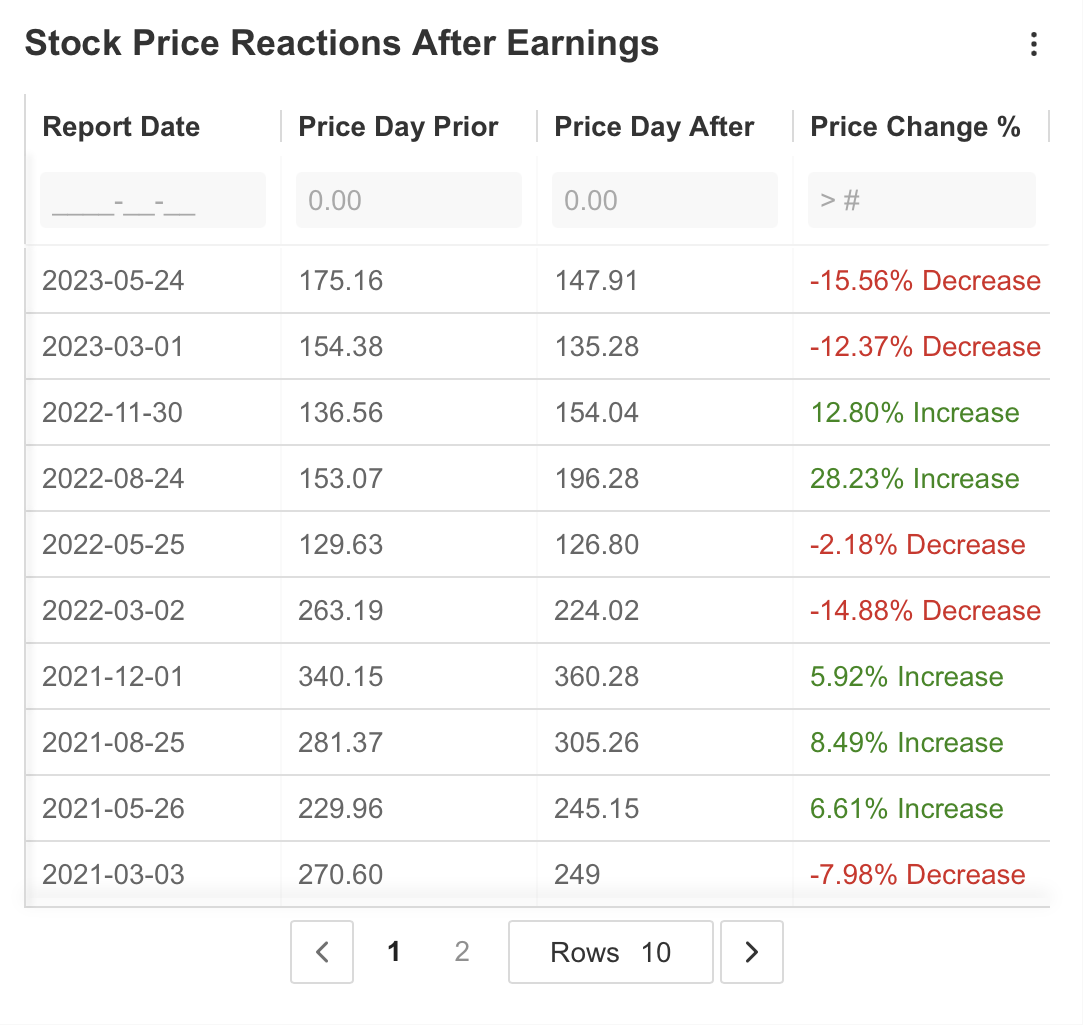
Source: InvestingPro
The Bozeman, Montana-based Snowflake is a cloud-based data warehousing company that provides businesses with a platform to store, manage, and analyze data. Founded in 2012, Snowflake gained significant attention after a blockbuster pandemic IPO that famously yielded Warren Buffett's Berkshire Hathaway (NYSE:BRKa) (NYSE:BRKb) an impressive $800 million profit in a single day.
Although the legendary Oracle (NYSE:ORCL) of Omaha has lowered his stake in the company ever since, he still owns a solid $945 million stake, which amounts to 0.3% of Berkshire Hathaway's portfolio, according to InvestingPro.
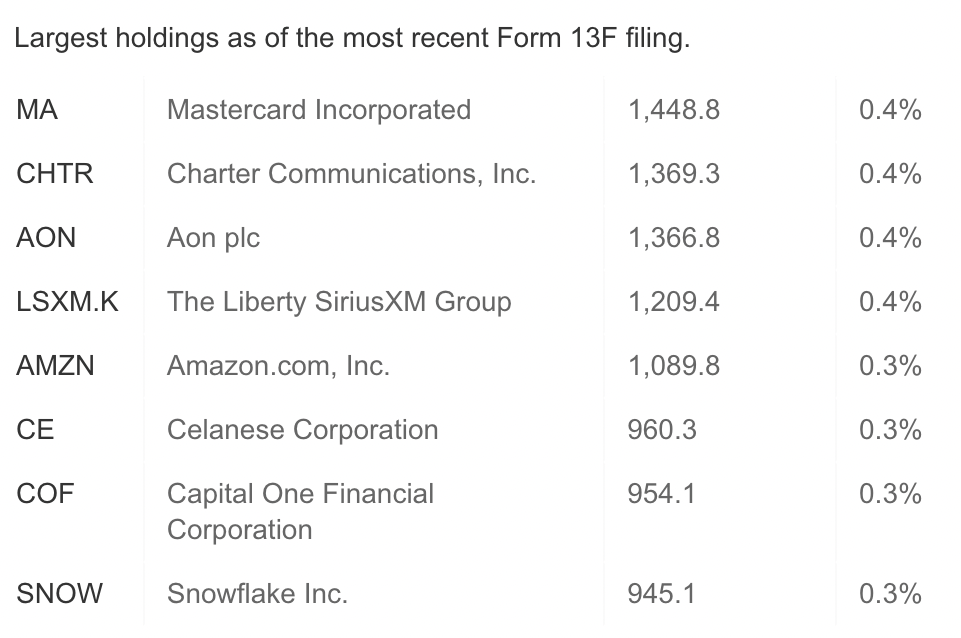
Let's take a quick look at the company's financial performance in the first quarter to try to answer that question.
Snowflake's Fundamentals
In Q1, the could provider reported revenue of $623.6 million, surpassing the expectations of InvestingPro by 2.6%. Additionally, their earnings per share stood at 15 cents, well above the expectations of 5 cents.
Looking ahead, according to InvestingPro's revenue and earnings per share forecasts for the second quarter and beyond, Snowflake's revenue is expected to continue growing on a quarterly basis, while their earnings per share are anticipated to decline.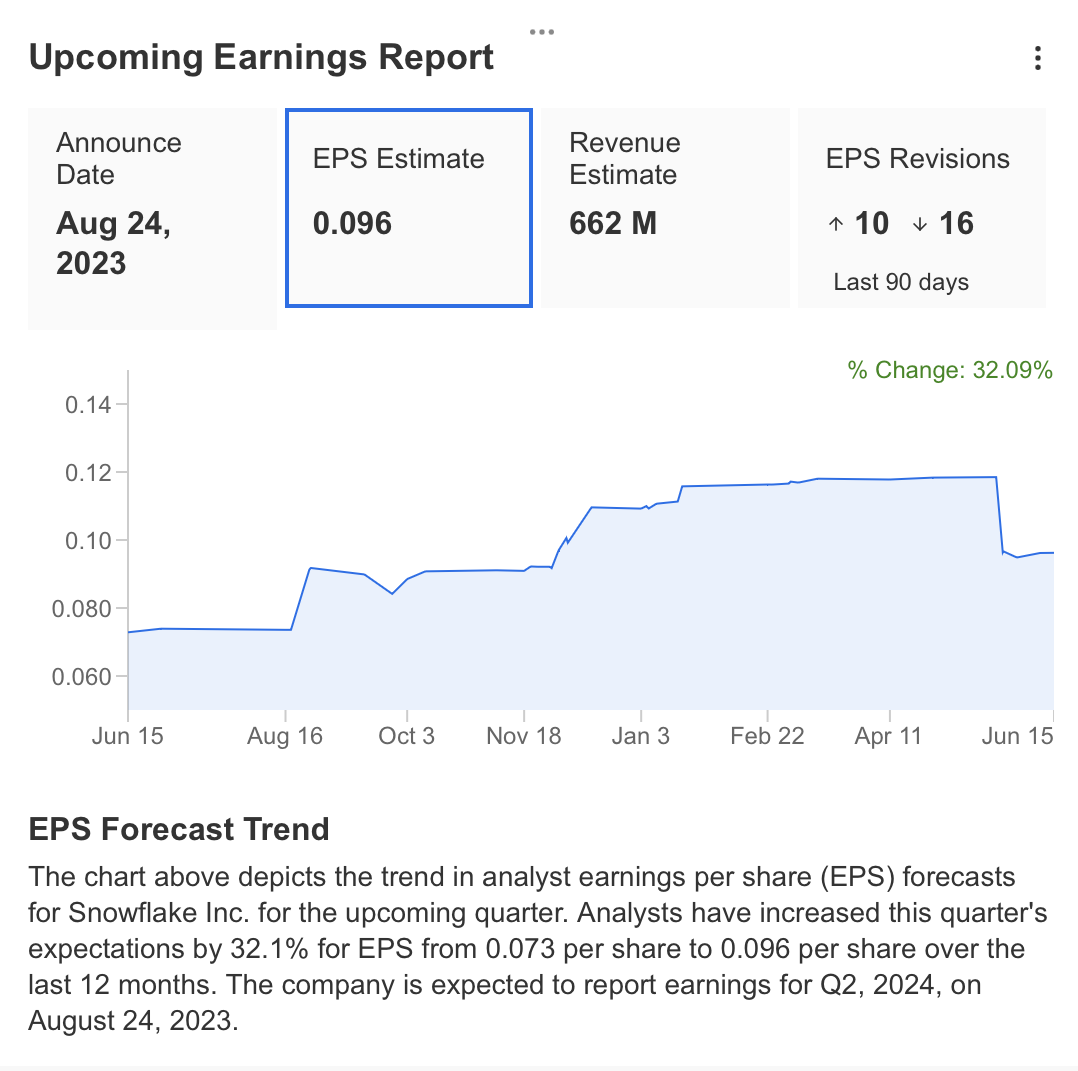
Source: InvestingPro
Based on these forecasts, the earnings per share expectation for the second quarter has been revised downward to $0.096. Over the past three months, 16 analysts have adjusted their estimates downward, while revenue expectations were set at $662 million.
Snowflake, however, fell short of meeting these expectations and maintained its revenue projection for the two quarters within the range of $620 million to $625 million.
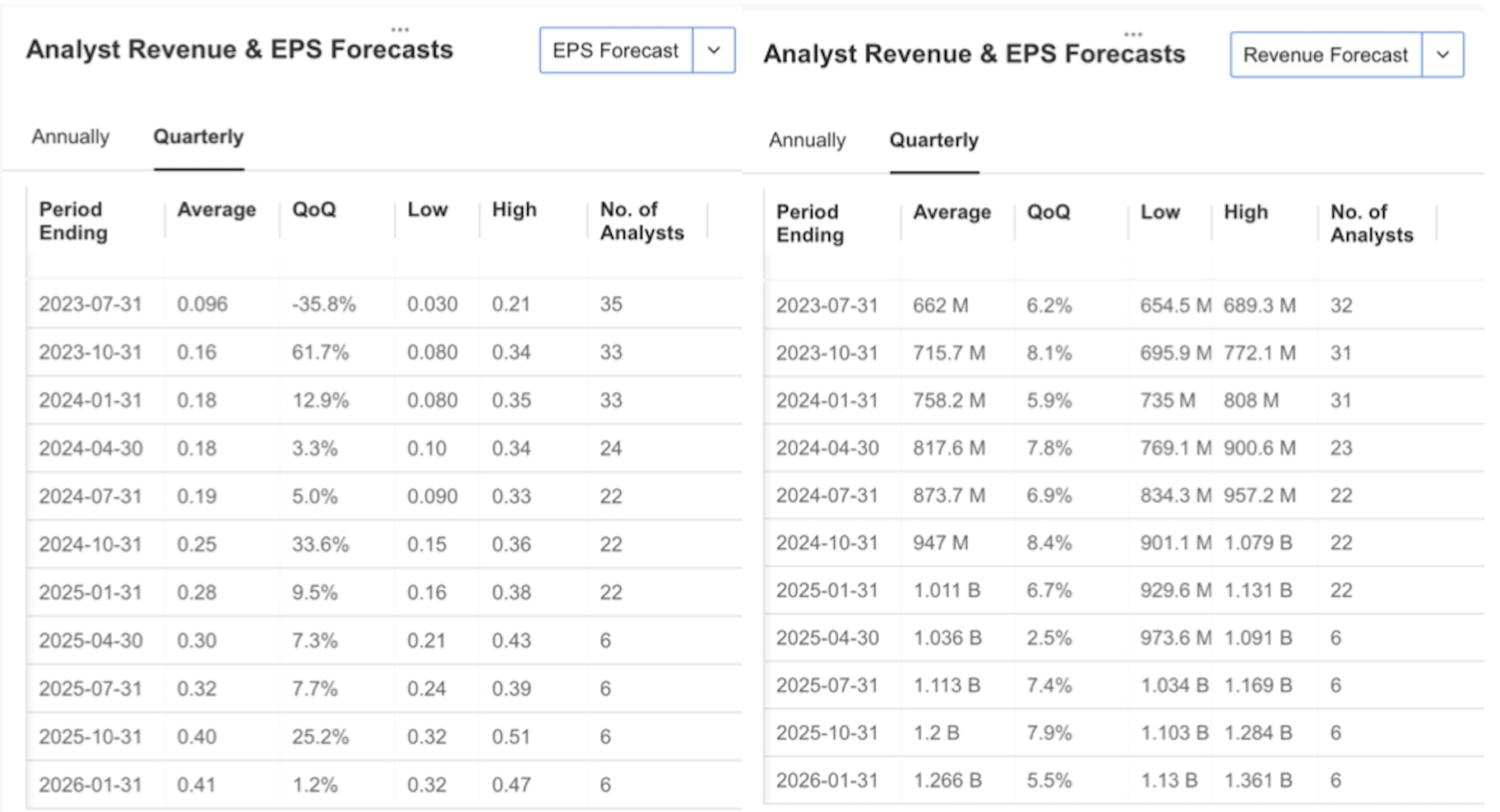
Source: InvestingPro
Snowflake operates in a similar space as Amazon Web Services (AWS) and generates a significant portion of its revenue from selling data analytics and management tools on cloud computing platforms. The company's revenue decline can be attributed to its consumption-based business model, which is sensitive to changes in demand and reflects the economic conditions in the United States. Initially, this model was lauded for its growth potential and user-friendliness.
On the other hand, Snowflake made an important move to keep up with the industry by acquiring Neeva, a player in the popular artificial intelligence sector.
Despite the negative sentiment in the sector and a slowdown in growth momentum, Snowflake's first-quarter results surpassed expectations, indicating sustained demand for the company's services. Although SNOW stock initially dropped by around 15% following the results, it rebounded in the following days and returned to the $180 range.
When considering the company's profitability, it continues to report net losses. Additionally, the company's high valuation relative to its revenue can be viewed as a negative factor, making the share price appear expensive.
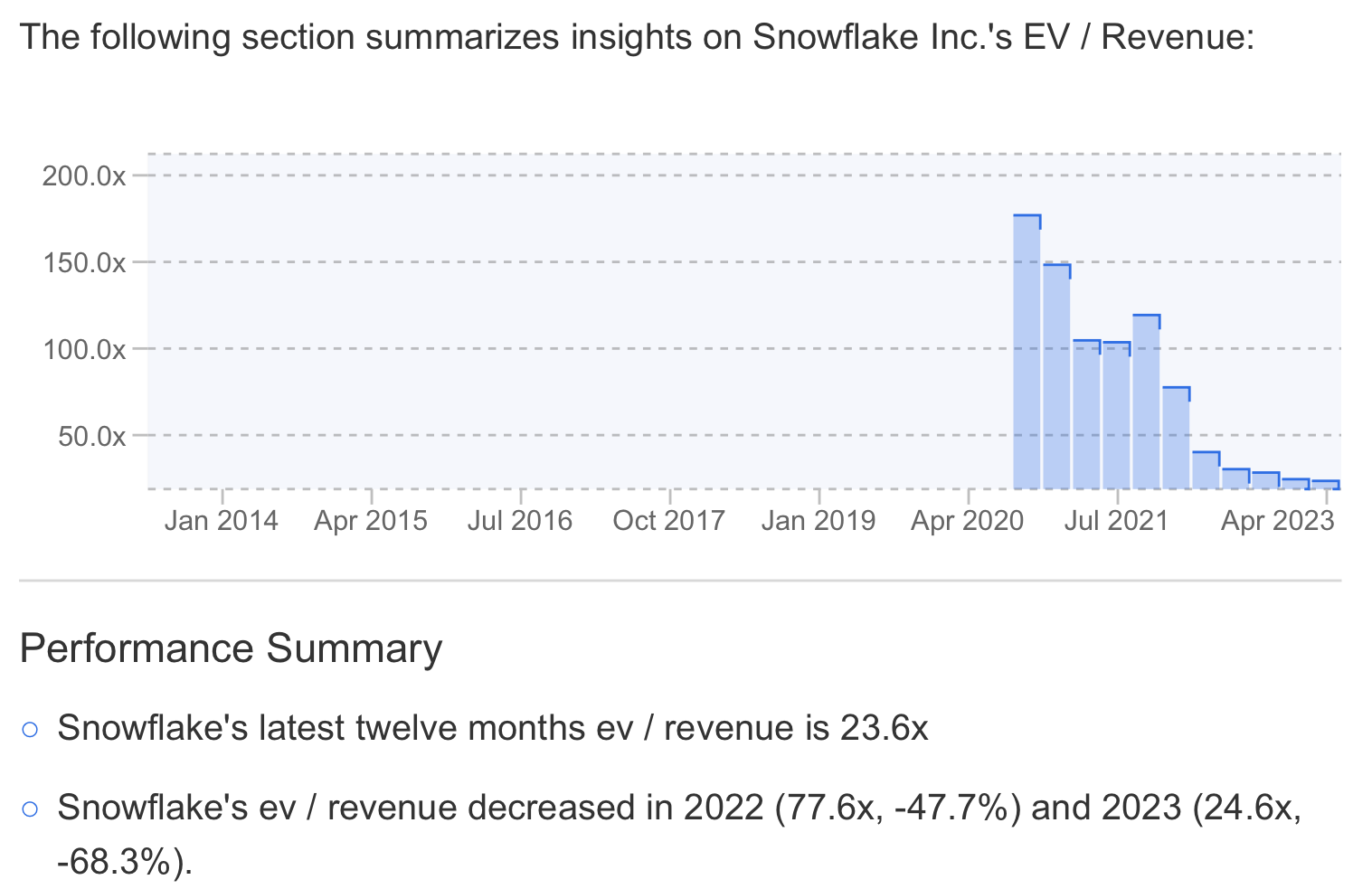
Source: InvestingPro
Despite the strong performance in the last quarter, the ongoing sector-based challenges suggest that the current stock price of Snowflake is trading at a premium according to InvestingPro's forecast. The fair value, calculated using 12 models, is currently estimated at $163.27, indicating a 7.5% premium over the current price.
However, financial analysts have differing opinions regarding the fair value price calculated by the financial model. On average, 38 analysts believe that the fair value for SNOW stock is $182. 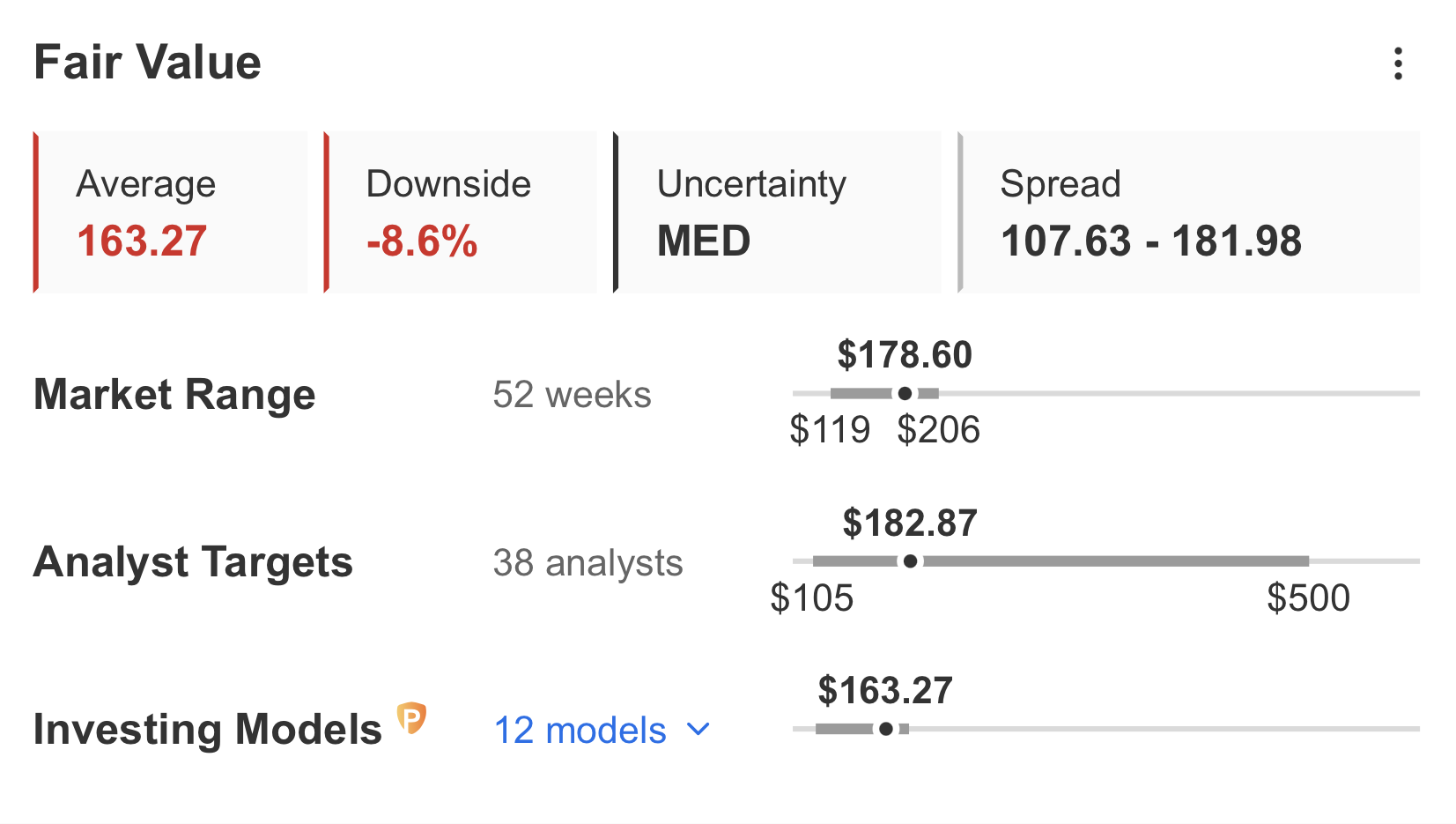
Source: InvestingPro
Assessing the company's current financial data on InvestingPro, Snowflake's overall performance can be characterized as average. While there are no issues with the company's cash flow, profitability remains a significant challenge. The relative value of the company also reflects negativity, although price momentum and growth currently demonstrate satisfactory performance.
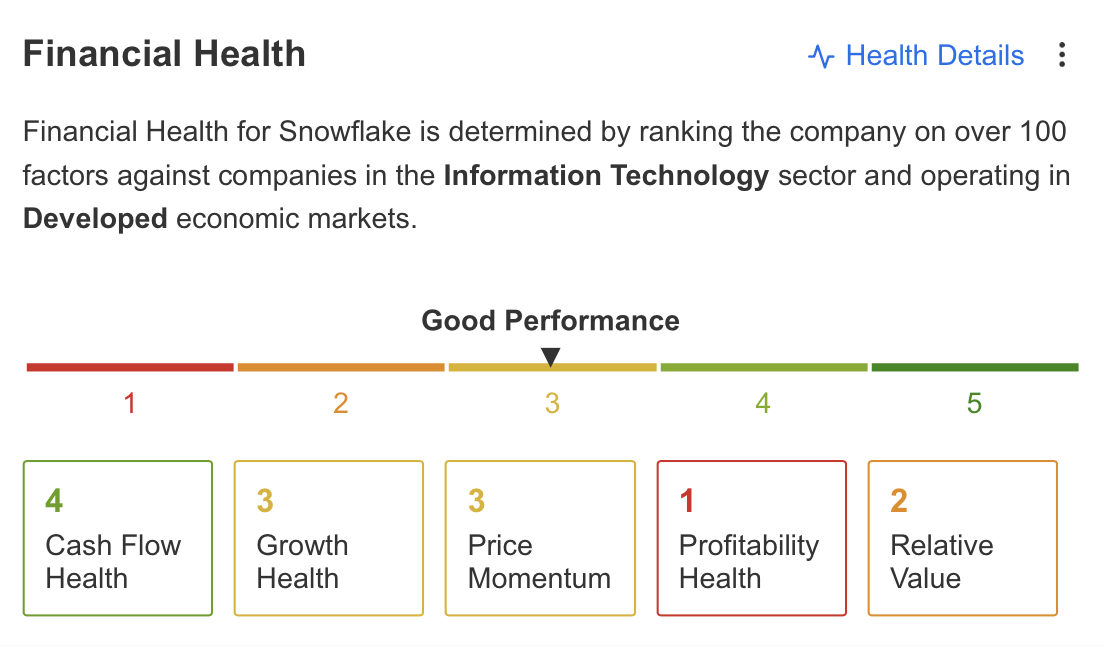
Source: InvestingPro
Despite some financial headwinds, there is potential for Snowflake to recover in the long term. Depending on the belief that the cloud computing sector will grow rapidly, aided by artificial intelligence, Snowflake may become an even more sought-after company.
One of its key advantages is the seamless interoperability it offers with its major competitors, such as AWS, Azure, and other cloud services. If Snowflake manages to further enhance its support for artificial intelligence in the future, its flexible business model and other strengths may attract more customers.
Get ready to boost your investment strategy with our exclusive summer discounts.
As of 06/20/2023, InvestingPro is on sale!
Enjoy incredible discounts on our subscription plans:
- Monthly: Save 20% and get the flexibility of a month-to-month subscription.
- Annual: Save an impressive 50% and secure your financial future with a full year of InvestingPro at an unbeatable price.
- Bi-Annual (Web Special): Save an amazing 52% and maximize your profits with our exclusive web offer.
Don't miss this limited-time opportunity to access cutting-edge tools, real-time market analysis, and the best expert opinions.
Join InvestingPro today and unleash your investment potential. Hurry, the Summer Sale won't last forever!
Disclaimer: This article is written for informational purposes only; it is not intended to encourage the purchase of assets in any way, nor does it constitute a solicitation, offer, recommendation, advice, counseling or recommendation to invest. We remind you that all assets are evaluated from different perspectives and are extremely risky, therefore the investment decision and the associated risk belong to the investor

